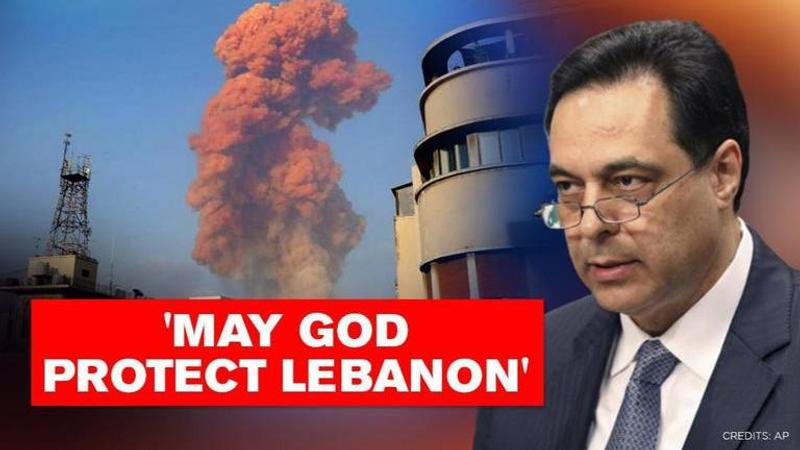Published 22:50 IST, August 10th 2020
Beirut explosion: Lebanon PM Hassan Diab announces resignation of government
Lebanon’s prime minister says he is stepping down from his job in the wake of the Beirut port explosion last week that triggered public fury and mass protests.

Lebanon’s prime minister says he is stepping down from his job in the wake of the Beirut port explosion last week that triggered public fury and mass protests.
In a brief televised speech, Prime Minister Hassan Diab said on Monday that he is taking “a step back” so he can stand with the people “and fight the battle for change alongside them.”
He said: “I declare today the resignation of this government. May God protect Lebanon,” repeating the last phrase three times.
A brief while earlier, Diab’s Cabinet resigned. The developments follow a weekend of anti-government protests in the wake of the Aug. 4 explosion in Beirut’s port that caused widespread destruction, killed at least 160 people and injured about 6,000 others.
Diab blamed corrupt politicians who preceded him for the “earthquake” that has hit Lebanon.
“They (the political class) should have been ashamed of themselves because their corruption is what has led to this disaster that had been hidden for seven years,” he added.
Lebanon govt resigned
Lebanon’s government resigned Monday amid widespread public fury at the country’s ruling elite over last week’s devastating explosion in Beirut. The move risks opening the way to dragged-out negotiations over a new Cabinet amid urgent calls for reform.
Prime Minister Hassan Diab headed to the presidential palace to submit the Cabinet’s group resignation, said Health Minister Hamad Hassan. It follows a weekend of anti-government protests in the wake of the Aug. 4 explosion in Beirut’s port that caused widespread destruction, killed at least 160 people and injured about 6,000 others.
The moment typified Lebanon’s political dilemma. Since October, there have been mass demonstrations demanding the departure of the entire sectarian-based leadership over entrenched corruption, incompetence and mismanagement.
But the ruling oligarchy has held onto power for so long — since the end of the civil war in 1990 — that it is difficult to find a credible political figure not tainted by connections to them.
Although Diab’s resignation had appeared inevitable after the catastrophe, he seemed unwilling to leave and only two days ago made a televised speech in which he offered to stay on for two months to allow for various factions to agree on a roadmap for reforms. But the pressure from within his own Cabinet proved to be too much.
Updated 23:01 IST, August 10th 2020




